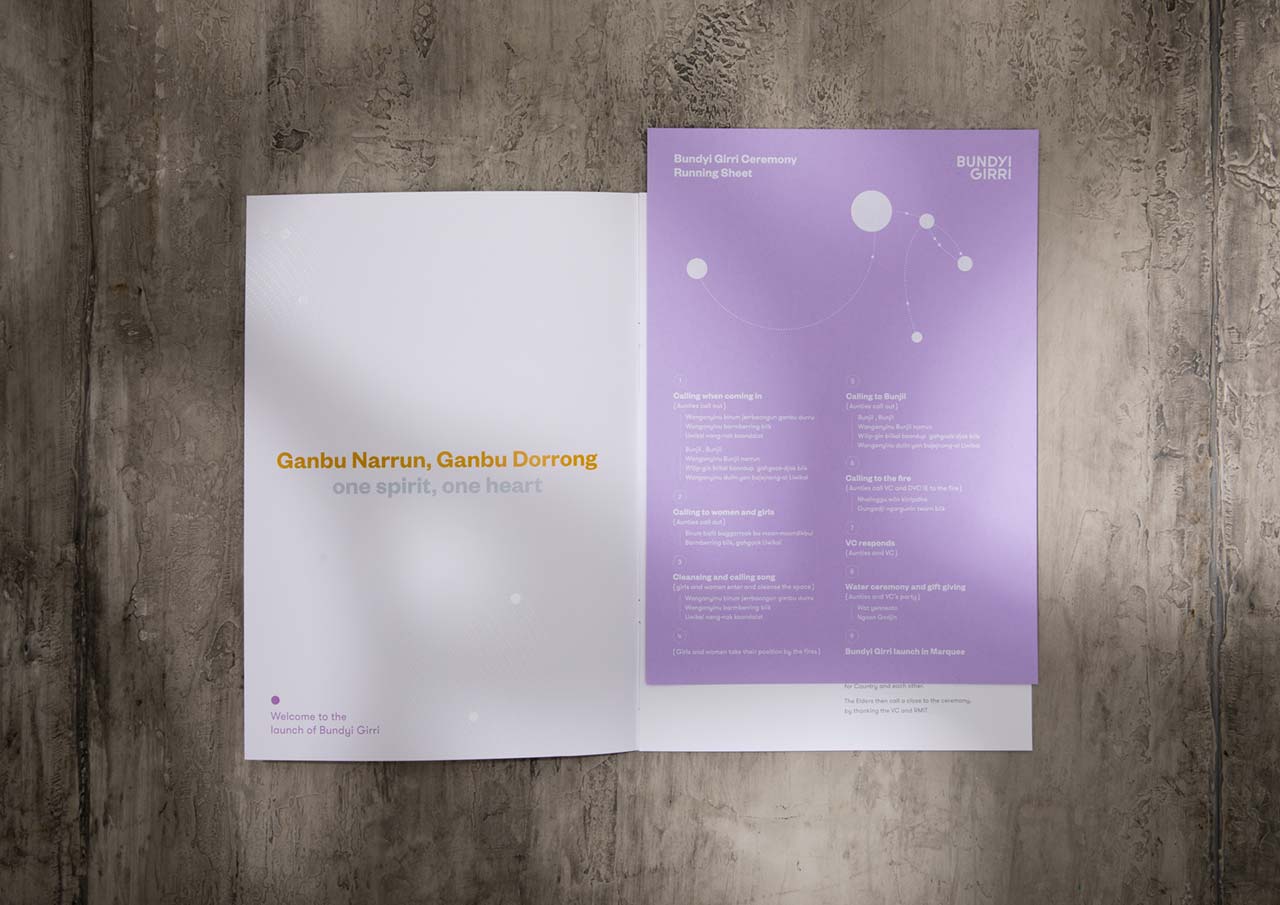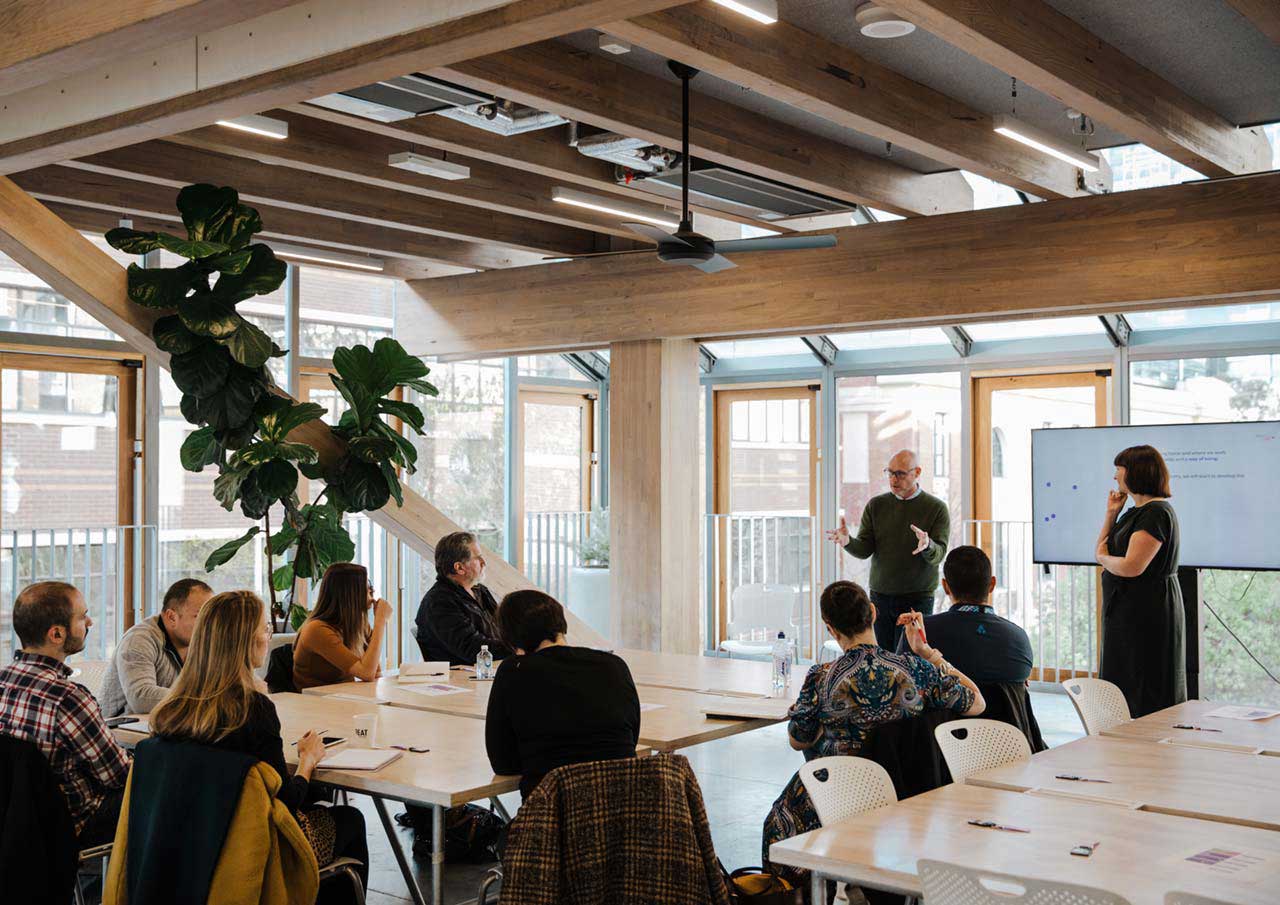The design methodology of Bundyi Girri originated through a series of Australian Research Council funded nation building activities, internationally and throughout Australia, conducted by Wiradjuri man Professor Mark McMillan, Deputy Pro Vice-Chancellor of Indigenous Education and Engagement and Peter West, Bundyi Girri Lead and PHD Candidate in the School of Design.
Bundyi Girri for Business is based on the core findings of an ongoing strategic change initiative at RMIT University, on the unceded lands of eastern Kulin. We begin by supporting non-Indigenous people into understanding their relationship to Indigenous sovereignty and invite each business to co-design their ecology of change.






